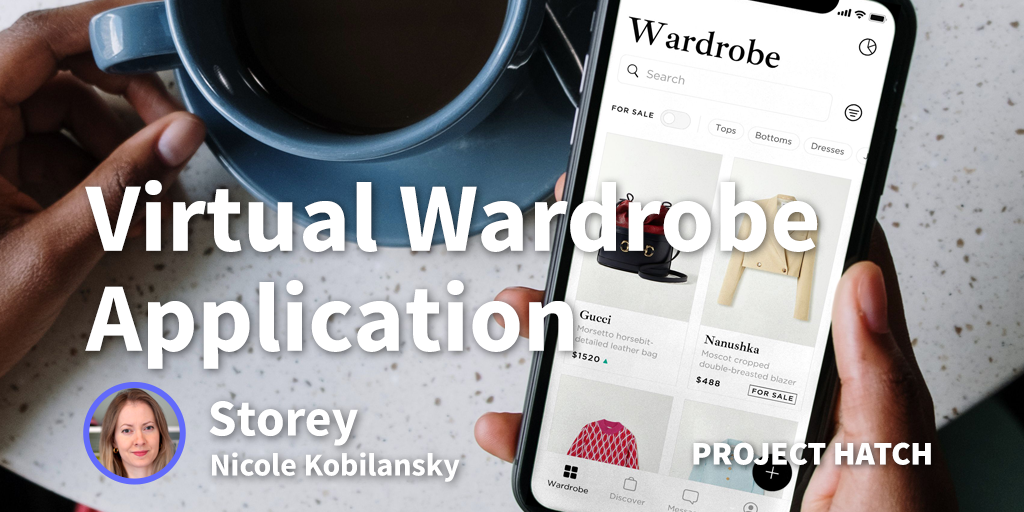I was working for a company selling advertising in a print magazine. Every Friday we would have to send out marketing packs containing copies of the magazines to potential advertisers. The lead time in converting these leads was far too long. So I came across a free flipbook animation and built a sample of the magazines that I could show them online instead. The next thing my lead time went from weeks to hours. It was then I knew that there must be 1000s of people like me with the same problem and I decided to go out and develop something myself.
I looked for whale size customers in our market and went to the marketing head or VP of that customer and made them an offer: “Use our software for free but let me build a case study on you”. I made no money from these customers but the value I extracted was immense. When other companies started seeing that these ‘business titans’ were using our software, it scaled from there.
I was the customer. I had a problem and I developed a solution to solve that problem. After that, I started contacting others in a similar position to myself and asked if they had the same problem.
Have you raised any money? How much?
To date, we have never raised or borrowed any money. We are completely organically grown. At the time all of our competitors were offering this as a cloud platform. I knew that this priced a lot of customers out of the market as the price point at that early stage far outweighed any benefit a SME would gain so I created a desktop solution that allowed companies to self host and put a price point that worked and it scaled from there.
Who is your target demographic?
Our software tools are focused on assisting companies to promote their content online through eBooks, Flipbooks, Newswalls, Apps and digital experience platforms. Our target demographic is marketing execs.
There are some really left field, weird and graphic magazines out there and at times customers would contact us with support queries and send us links to their magazines. Some things can't be unseen!
How did you fund the idea initially?
My initial entry into the market was the fact that everyone doing this was offering an online service. I provided a desktop service. We were the first to offer this and sales grew from there. Every penny I got went back into growing and improving our service. This really paid off and soon we were able to scale the business without seeking investment.
Where did you meet your co-founder/founding team?
I worked with my COO in another job. We got on well and share a similar work ethos.
Finding the right talent is hard. Getting people to leave comfort for risk can be hard. Our first employees were young, hungry and wanted something that would give them the space to make their mark. We had no shortage of applicants in those early days. But, for us, personality was just as important as talent. We needed to make sure that the team gelled well together and, for that reason, we took our time to find the right people. If you have a toxic personality in the team, no matter how talented they are, you have to get them to move on fast. Having said that, my first 10 staff were fantastic people who stayed with us for years. Many are still here, in fact!
Did you run any companies prior?
No, but I had run many ideas through the startup funnel to see if there was anything there.
I always wanted to run my own business. I had a lot of false starts. I would come across an opportunity, ‘run the numbers’, spend some time prototyping and then talking to potential customers. Although those ideas never came to anything, the only thing they cost me was time and every one of them had value as each taught me a little more than before. And then, when the real opportunity came my way, I was ready. I followed the same process and the results told me that this was the one. I am a firm believer that success occurs when preparation meets opportunity.
My family and friends were super-supportive and brutally honest - a good combination, something you don’t always get in the field! These people are the perfect sounding board for honing your pitch and sales patter. When you are starting out, you can get a lot of love from the business community. Someone once referred to this as the ‘Barney Effect’ - no one wants to put your idea down, everyone wants to encourage you. That’s great but positivity needs to be tempered with brutal honesty, too!
What motivates you when things go wrong? What is the end goal?
When something goes wrong, remember that shit happens but fail fast. You are not in control of the market but don’t take another step until you’ve figured out what happened and what measures can be taken to stop this happening again.
For someone just starting out, more than the idea, I think the reason things worked so well for us at the start was market timing. I was in the right spot at the right time. People needed my solution and I was offering it in a way that no-one else was. And it was my time. I was ready.
The best advice I ever got - and something I also had to learn the hard way - was “Fail Fast”. People can, at times, be too afraid to admit defeat. I am guilty of this: getting caught up in something because of the time or money I’ve spent. But if it isn’t working, you have to walk away. There will be value in what you’ve done, whether it's components that can be reworked for something else or the experience you have gained.
What has driven the most sales?
Our customers are B2B and I have found that the telephone is best. That personal touch. After that email works best. From a social perspective, LinkedIn is very useful for enhancing your brand. At the right time we will be 3x the size of where we are right now.
How do you protect yourself from the competition?
In software, there are no real barriers to entry for very long. Our strategy is to stay ahead of the competition by constantly innovating. We try to consider where the market is going, what could really disrupt our market and work to build solutions to address them before they actually happen. We have trademarks on our product branding and names.
What are the top 3-5 apps your business could not run without?
Google Docs, Amazon Web Services and Hubspot. A good CRM is essential for managing your pipeline, customers, and your own tasks. All teams should use a cloud office solution such as google Docs .
What are your favourite books?
I’m a big fan of Malcolm Gladwell’s books. But I read a great book recently from a captain of the publishing industry called Felix Dennis, owner of Dennis publishing. The book is called “How to Get Rich”. It’s a cheesy title but the book offers great insights into the psyche of an entrepreneur.
Also, “Born to Run” by Christopher McDougall. Keeping yourself healthy is critical!
What are your next steps for 3D Issue?
We are getting ready to launch experios. It is an online platform that allows you to create responsive magazines without the need to use designers or coders. It's a simple and intuitive drag and drop editor that allows you to create stunning magazines in minutes. Think Squarespace for magazine publishers.
Also, we are moving to a 4-day working week. We recently offered our staff the option of a 20% pay rise or a 4-day working week (with the same pay). Everyone - to the last person - chose the 4-day working week. We feel it is the right time to make this shift as our staff’s happiness is critical to the success of our company going forward.
What will make experios unique is that publishers will be able to automate magazines by plugging in their content pipeline. With an open API, the platform was built with partners in mind. The full suite can be white-labeled and comes with full CRM.
In 5 years, the company is being considered one of the thought leaders in the digital experience market. As a private company, I would rather not disclose our revenue but I will say that we have close to 2,000 active subscription customers and 7,000 legacy clients.
Never say never but selling is not in our near future plans.
How We Want to Extend Our Help to Educators and Students?
Today is a challenging time for everyone with schools, for example, implementing e-learning at a moment's notice. We want to do our bit to help. We’ll provide any school - anywhere in the world - with a copy of our flipbooks desktop software, free of charge, for the duration of the coronavirus pandemic.
A member of the teaching team can then install the software to create digital copies of pupils’ assignments – in an interactive flipbook format – for posting online. Many schools already use the software to digitally publish learning resources and coursework for sharing with students.
| Company Name: | 3D Issue |
|---|---|
| Founder: | Paul McNutty |






